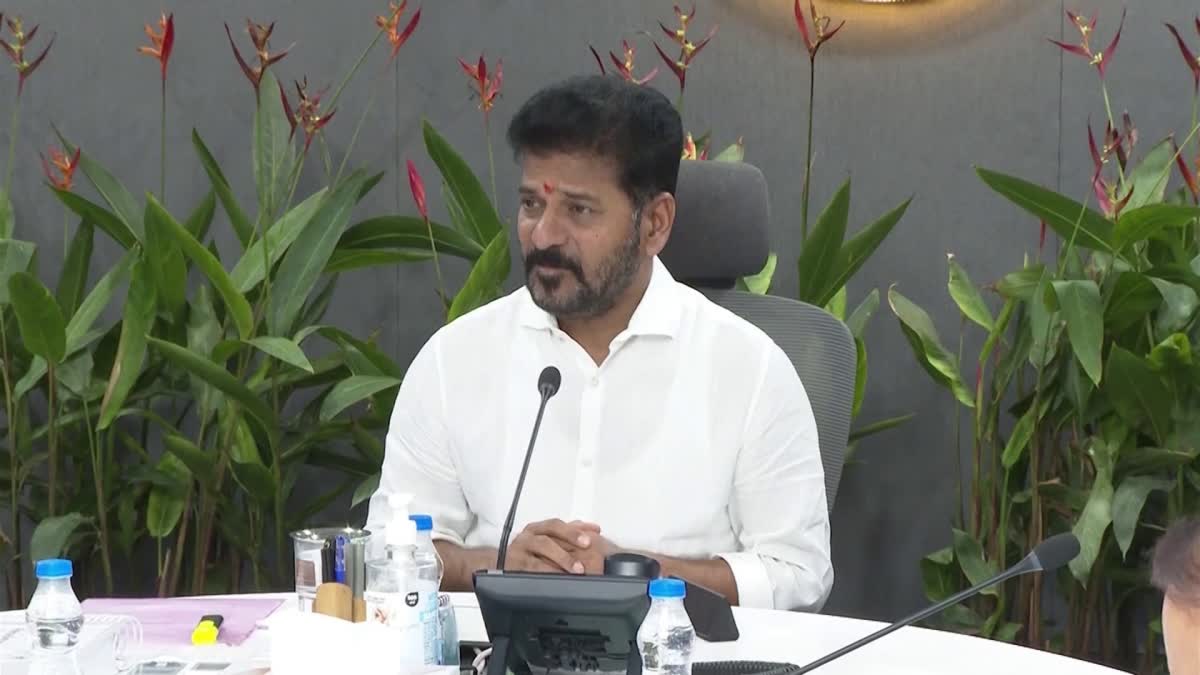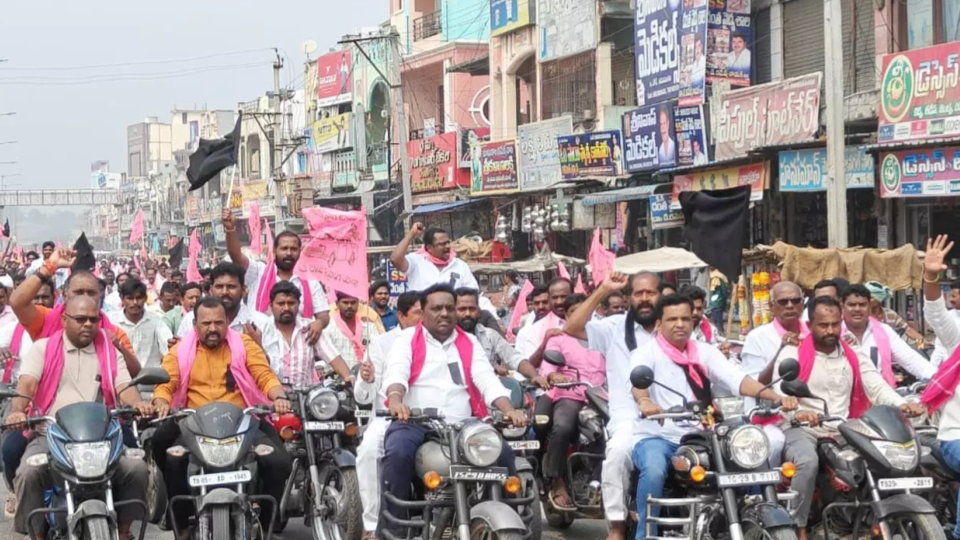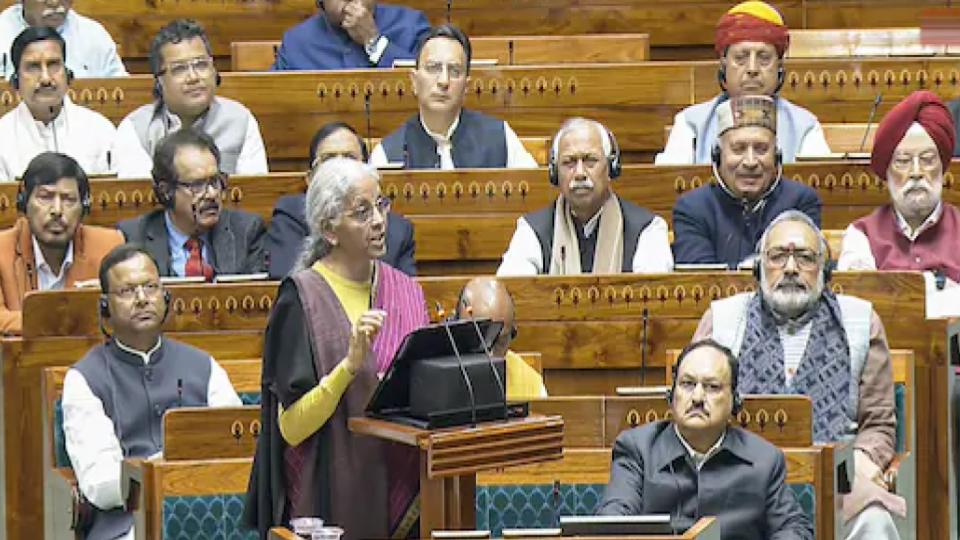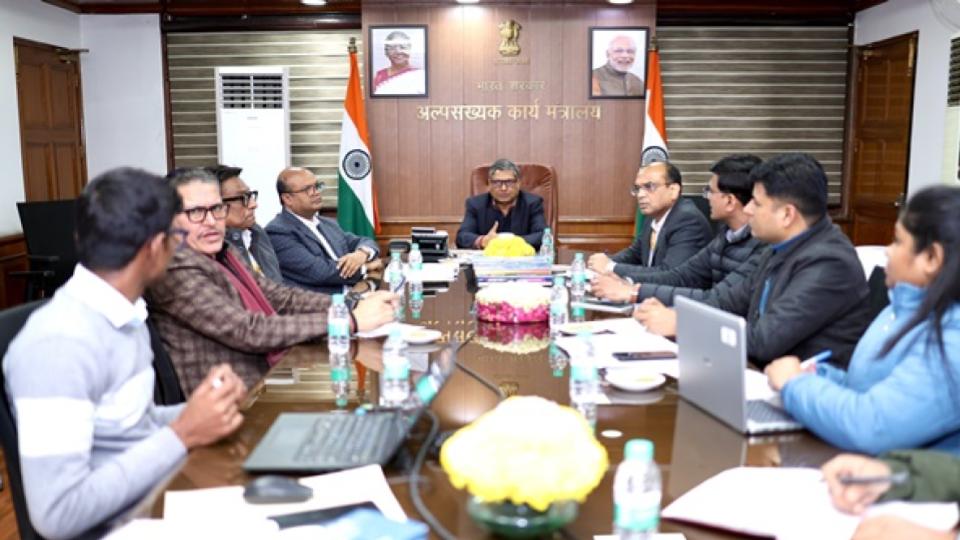Lok sabha poll results showed that the people are happy with my government: CM A Revanth Reddy
Thu 06 Jun 2024, 12:02:51

Chief Minister A. Revanth Reddy compared the Congress’s performance in the Lok Sabha polls in Telangana with Ugadi Pacchadi — a mix of tastes, good and bad. Addressing the media at his residence here on Wednesday, Revanth Reddy expressed his happiness over the Congress winning eight out of the 17 Lok Sabha seats and the Secunderabad Cantonment assembly seat in Telangana a day ago.
He expressed his disappointment over the Congress’s failure to retain the Malkajgiri Lok Sabha seat that he represented till recently, and the Mahbubnagar Lok Sabha seat in his home district. "I, as TPCC chief and as Chief Minister, take the responsibility for the party's victory and defeat in every election. I take the Lok Sabha poll results as Ugadi Pacchadi, a mixture of six different tastes — sweet, sour, salty, pungent, spicy and bitter. We won eight seats and lost seats like Malkajgiri and Mahabubnagar," he remarked.
Revanth Reddy referred to his previous statement that he considered the verdict in the TS Lok Sabha polls a referendum on the 100-day
performance of the Congress government in the state. "Prior to the issuing of the Lok Sabha election notification, I announced that Lok Sabha elections are a referendum on the performance of the Congress government. We implemented 5 out of 6 guarantees we gave the voters during the assembly polls within 100 days of our assumption of office and sought votes in LS polls based on our performance this year. The Congress won eight out of the 17 Lok Sabha seats, and we could claim a 41 per cent vote share. It is higher than the 39.5 per cent vote share we got in the assembly polls six months ago.”
performance of the Congress government in the state. "Prior to the issuing of the Lok Sabha election notification, I announced that Lok Sabha elections are a referendum on the performance of the Congress government. We implemented 5 out of 6 guarantees we gave the voters during the assembly polls within 100 days of our assumption of office and sought votes in LS polls based on our performance this year. The Congress won eight out of the 17 Lok Sabha seats, and we could claim a 41 per cent vote share. It is higher than the 39.5 per cent vote share we got in the assembly polls six months ago.”
He said, “Lok sabha poll results showed that the people are happy with my government. The Congress wrested the Secunderabad Cantonment Assembly seat from the BRS in the present bypolls. We got the highest vote share of 41 per cent in the LS polls in the state." The Chief Minister said, “I and my ministers were working for 18 hours a day. From now on, we will work for 20 hours every day to deliver better governance to people.”
No Comments For This Post, Be first to write a Comment.
Most viewed from Hyderabad
Most viewed from World
AIMIM News
Latest Urdu News
Most Viewed
May 26, 2020
Is it right to exclude Bangladesh from the T20 World Cup?
Latest Videos View All
Like Us
Home
About Us
Advertise With Us
All Polls
Epaper Archives
Privacy Policy
Contact Us
Download Etemaad App
© 2026 Etemaad Daily News, All Rights Reserved.


.jpg)








.jpg)

























.jpg)
.jpg)
.jpg)


